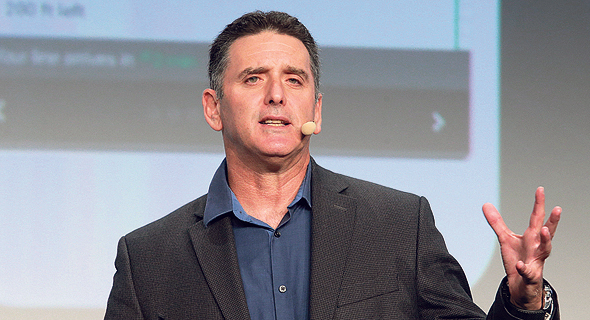Interview
Intel Acquisition Happened Very Quickly, it was all Done Over Zoom, Reveals Moovit CEO
Nir Erez provides behind the scenes details of this week’s billion-dollar deal and how he is able to score free meals
“From our perspective, this deal happened very quickly,” Nir Erez, the CEO and co-founder of Israel-based Moovit App Global Ltd. said in an interview with Calcalist on Tuesday, a day after his company was acquired by tech giant Intel for nearly $1 billion.
“Intel invested in Moovit in 2018 and it has taken on an important role in its operations ever since, and Erez (Dagan, Mobileye’s Executive Vice President of Products and Strategy, HR) sits on the board. They knew what was going on in the company and met with other partners. The process rapidly shifted gears — We received the offer a month ago and had to reach a decision quickly.”
 Moovit CEO and co-founder Nir Erez. Photo: Orel Cohen
Moovit CEO and co-founder Nir Erez. Photo: Orel Cohen
What will the company’s employees gain from the acquisition?
“I don’t want to go into details because we don’t know what they are yet, but Intel and Mobileye are looking at long term objectives and want to make sure everybody stays on. Part of that is ensuring that employees are well rewarded,” Erez said.
How did the employees react?
“They were happy and excited. It is important to note that the transaction was completed virtually, the entire process was done via Zoom video calls, including the signing and the company assembly that announced it. It was very exciting when more than 200 people joined the call yesterday to hear Amnon Shashua’s announcement speech. It also allowed all families to take part,” Erez said.
For the first five years of its existence, Moovit operated as a free app, enabling users to plan public transportation routes. In 2018, the company found a new way to monetize by gathering public transport data and offering it to local authorities and transportation providers.
"We have the most widespread infrastructure in the world when it comes to public transportation products," Erez said. "When we started, only 15% of that information was available. We also have the ability to gather information on people's needs. Both types of data are critical to running smart city transportation. At the end of the day, when Mobileye turns autonomous vehicles into a service, it needs to know what people want.”
You work with companies like Uber and Lyft, what is the difference between their needs and those of a company like Mobileye?
"Mobileye’s needs were different. For example, Mobileye and Volkswagen have a service that will run in Israel and they needed analyses to decide which routes to run it on. Other organizations require different services.
And what did they and your other partners say about the acquisition?
"I have yet to answer all the emails, but we did not get any problematic responses, on the contrary, everyone congratulated us on the deal," Erez said.
In the interview, Dagan emphasized that, even after the acquisition, Moovit will continue to provide service to its users and customers: "Moovit can be looked upon as an organization that has taken on the broad task of digitization of urban solutions. The integration with Mobileye will add a layer of automation, both to the end users and our transportation partners. Moovit’s partners will only benefit from the new package because we will add a lot of new services. For example, the insights needed to design an efficient and effective service for transportation providers, especially for those with limitations such as route selection.”
Will all these new services you mention be available to all the users?
“We will continue to establish Moovit as a marketplace for our network of partners,” said Dagan.
Did recent events, namely the coronavirus pandemic, change anything in the way you operate?
“Covid-19 has increased the need to update information on a daily basis, people start their day uncertain about what's working and what's not and we're practically the only organization that is able to provide daily updates in many places in the world,” Erez said. “The number of public transportation users has decreased, but vital workers still had to be transported and as a result, we received interest from private companies such as banks, and it has shifted our focus. Even now, when there is a feeling that things are starting to go back to normal, there is still a lot of uncertainty about what’s running and what isn’t.”
.
Do you use public transportation?
"Wherever I can. In fact, I often bet other people that I can get to a restaurant using public transportation faster than they can and I’ve won quite a few free meals this way. I've collected nearly 35 magnetic public transit cards from all over the world.”



